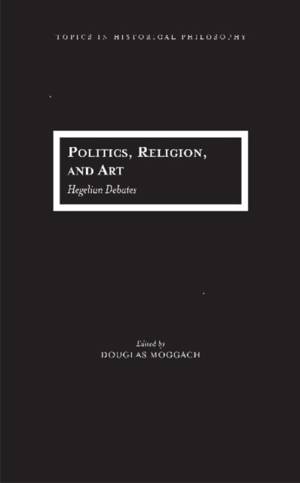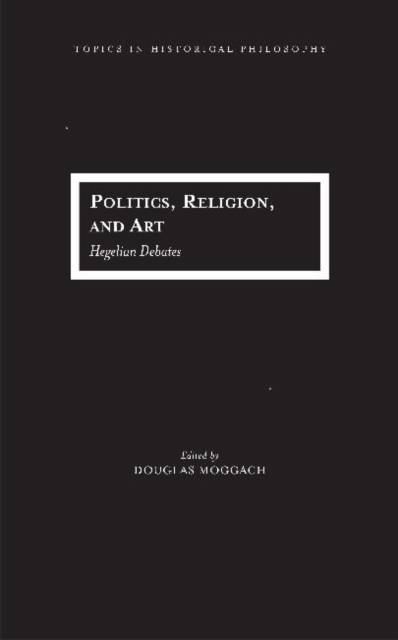
- Afhalen na 1 uur in een winkel met voorraad
- Gratis thuislevering in België vanaf € 30
- Ruim aanbod met 7 miljoen producten
- Afhalen na 1 uur in een winkel met voorraad
- Gratis thuislevering in België vanaf € 30
- Ruim aanbod met 7 miljoen producten
Zoeken
Omschrijving
The period from 1780 to 1850 witnessed an unprecedented explosion of philosophical creativity in the German territories. In the thinking of Kant, Schiller, Fichte, Hegel, and the Hegelian school, new theories of freedom and emancipation, new conceptions of culture, society, and politics, arose in rapid succession. The members of the Hegelian school, forming around Hegel in Berlin and most active in the 1830's and 1840's, are often depicted as mere epigones, whose writings are at best of historical interest. In Politics, Religion, and Art: Hegelian Debates, Douglas Moggach moves the discussion past the Cold War-era dogmas that viewed the Hegelians as proto-Marxists and establishes their importance as innovators in the fields of theology, aesthetics, and ethics and as creative contributors to foundational debates about modernity, state, and society.
Specificaties
Betrokkenen
- Auteur(s):
- Uitgeverij:
Inhoud
- Aantal bladzijden:
- 368
- Taal:
- Engels
- Reeks:
Eigenschappen
- Productcode (EAN):
- 9780810127296
- Verschijningsdatum:
- 14/04/2011
- Uitvoering:
- Hardcover
- Formaat:
- Genaaid
- Afmetingen:
- 160 mm x 231 mm
- Gewicht:
- 612 g

Alleen bij Standaard Boekhandel
+ 272 punten op je klantenkaart van Standaard Boekhandel
Beoordelingen
We publiceren alleen reviews die voldoen aan de voorwaarden voor reviews. Bekijk onze voorwaarden voor reviews.











